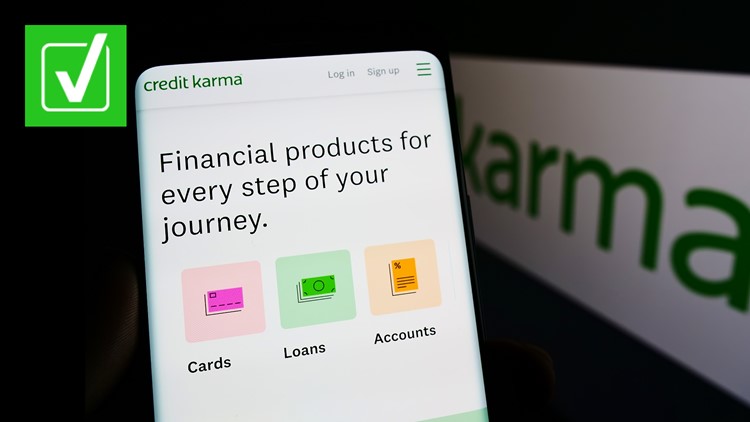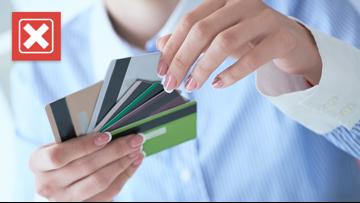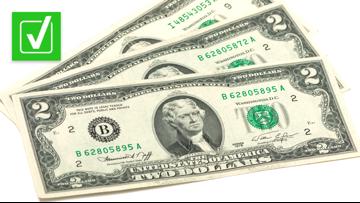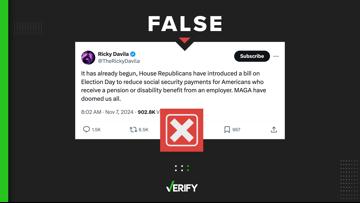In early September, news broke that Credit Karma, a credit monitoring service, was ordered by the Federal Trade Commission (FTC) to compensate people that were tricked into applying for credit cards and loans through deceptive methods that claimed they were pre-approved.
News of the settlement spread on social media, with some people claiming the settlement would be divided among all Credit Karma users. Searches into Credit Karma have also spiked since the settlement was announced.
The VERIFY team reached out to sources to find out if the settlement is legitimate and what Credit Karma users need to know.
THE QUESTION
Is the Credit Karma settlement real?
THE SOURCES
THE ANSWER
Yes, the Credit Karma settlement is real. The Federal Trade Commission and Credit Karma have agreed on a $3 million settlement that will be split among some users. The settlement has not been finalized, and it could be months before anybody gets a refund.
WHAT WE FOUND
Credit Karma and the Federal Trade Commission (FTC) have agreed to a $3 million settlement that will be divided among some users that were targeted with misleading pre-approved loan or credit card offers.
The FTC alleged that from February 2018 through April 2021, Credit Karma marketed to some users that they were “pre-approved” for credit cards or loans, with misleading disclaimers.
Some of the disclaimers didn’t warn people they would be subject to credit checks that could lower their credit score. One disclaimer said it was unlikely to not be pre-approved, that 90% of people who apply get the credit card.
According to the complaint from the FTC, that wasn’t true. For many offers, almost a third of the “pre-approved” people who applied were denied – and those people were subjected to a “hard inquiry,” or hard credit pull, as part of the underwriting process to get approved for a credit card.
In many instances the “hard inquiry” lowered the credit scores of those whose applications were denied, the FTC says. Not only were their credit scores likely lowered, but their time was wasted when going through the approval process, the FTC says, because of Credit Karma’s tactics.
More from VERIFY: Yes, the Equifax data breach settlement email and website are real
As of Sept. 6, the settlement deal with Credit Karma is in a public comment period. The FTC calls for public comment on most proposed settlements and other agency activities.
The public has until Oct. 6 to make a comment on the matter. Once that period expires, the commission will vote to approve the settlement, an FTC spokesperson told VERIFY.
After the FTC approves the settlement, Credit Karma will have 15 days to provide user data on those who may have been deceived into applying for the “pre-approved” offers.
The FTC will review the data, and at that time, it will determine who gets a refund and how much. That is still months away, an FTC spokesperson told VERIFY, because it depends on how long it will take to review the data. To find out if you have a refund coming, you can go to ftc.gov/refunds and check on the status of a settlement refund.
A person won’t have to file a claim or apply to see if they are eligible to receive a refund, the FTC says. That information will be provided directly to the FTC by Credit Karma and the payout will come directly from the FTC.
Credit Karma issued a statement saying the company “fundamentally disagrees” with the FTC ruling but still agreed to the $3 million settlement.
The FTC has a guide on what to do if you get an offer of credit, like the ones claiming you’re pre-approved for a credit card. Check out the guide here, and as always, if you’re concerned about a scam, you can reach out to us at VERIFY by emailing our team at questions@verifythis.com.













